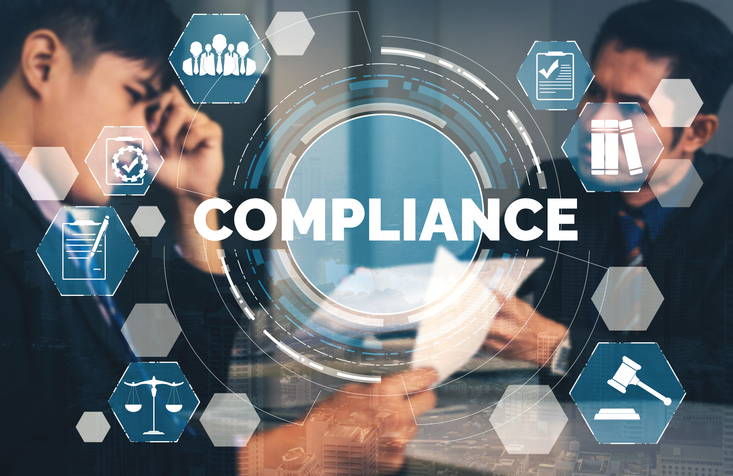After President Trump’s recent executive orders targeting Diversity, Equity, and Inclusion (DEI) initiatives, Human Resources teams are facing uncertainty, risk, and new compliance challenges. With mandates for federal contractors to disavow DEI programs and potential investigations into major private-sector organizations, HR leaders must immediately assess their policies for legal exposure and prepare for pressure to reduce and/or terminate DEI programs. Most private organizations are unlikely to be scrutinized, but it’s important that leaders are aware of the compliance risks and think through their next steps.
Here’s what HR professionals should be most concerned about—and what to do next.
Understanding the Executive Orders: What’s at Stake?
The January 21st executive order, “Ending Illegal Discrimination and Restoring Merit-Based Opportunity,” has the most immediate impact on HR teams because it directly affects hiring practices, employee resource groups (ERGs), training programs, and federal contracting compliance.
Key provisions HR should note:
- Federal contractors must certify they do not operate DEI programs that violate federal antidiscrimination laws.
- The Attorney General must identify, within 120 days, “egregious DEI practitioners” for potential civil compliance investigations—including publicly traded corporations, large nonprofits, higher education institutions, and professional associations.
- The order broadly bans “illegal DEI” across all sectors and states that federal agencies must enforce compliance with civil rights laws in both public and private companies.
This creates a heightened risk for any employer with formal DEI initiatives, especially those that have tied hiring, promotions, training, or employee groups to identity-based criteria. HR teams must act now to evaluate policies and ensure legal compliance.
Immediate Action Plan for HR Leaders
1. Conduct a Full Review of Workplace Policies
Begin by auditing all DEI-related policies—including hiring, promotion, pay equity, and training programs—to determine whether they could be labeled as discriminatory under the new executive order.
- Review job descriptions and hiring practices: Avoid any language suggesting race, gender, or other protected characteristics influence hiring decisions.
- Assess training programs: Remove any mandatory training that could be perceived as requiring employees to acknowledge systemic bias or privilege.
- Examine mentorship and leadership programs: Ensure that participation is open to all employees, rather than targeting specific demographic groups.
Recommendation: Work closely with legal counsel to ensure your policies comply with existing federal, state, and local laws while still fostering an inclusive workplace.
2. Reevaluate Employee Resource Groups (ERGs)
Employee Resource Groups (ERGs) are likely to face extra scrutiny, as limiting membership to specific identity groups could be seen as exclusionary under Title VII of the Civil Rights Act.
- ERGs should be open to all employees—any restriction based on race, gender, or other legally protected traits present a compliance risk.
- Rename and reframe ERGs to focus on shared experiences rather than identity-based criteria. Example: Instead of a “Women in Leadership” ERG, consider a “Leadership Development Network” that remains inclusive while still supporting underrepresented talent.
- Clarify ERG ground rules—ensure that discussions remain professional and aligned with the company’s values of inclusivity without creating legal exposure.
Recommendation: Do not eliminate ERGs, but adjust their structure to focus on professional development, business impact, and broad participation.
3. Prepare for Increased Compliance Audits and Potential Investigations
With the Attorney General tasked with identifying major companies for DEI-related investigations, HR teams must be ready to defend their workplace policies under federal scrutiny.
- Federal contractors should assess compliance with Section 503 (Rehabilitation Act) and VEVRAA (Veterans’ employment protections), as these remain in effect even after Executive Order 11246 was rescinded.
- Ensure all employment decisions are based on objective, job-related criteria to avoid potential legal challenges.
- Keep detailed records of hiring, promotions, and DEI program participation to demonstrate compliance with existing labor laws.
Recommendation: If your company receives federal contracts or grants, consult with counsel to prepare for potential audits.
Long-Term Implications: What Happens As DEI Becomes “Illegal”?
If the current trajectory continues, employers could see further rollbacks of corporate DEI programs, including:
- Bans on diversity hiring goals—Companies may be restricted from setting public diversity benchmarks for hiring and promotions.
- Legal challenges to pay equity initiatives—Efforts to close racial and gender pay gaps could face greater legal hurdles.
- Restrictions on workplace culture training—Employers may be limited in how they address bias, inclusion, and equity topics in training programs.
Some companies may choose to abandon DEI entirely to avoid legal risks, while others will embed DEI principles into broader HR policies without explicitly labeling them as such.
- Reframe DEI as a business strategy—Instead of focusing on DEI as a standalone initiative, align it with workforce development, management skills, and business outcomes.
- Embed inclusivity into leadership and performance reviews—This ensures DEI efforts continue without being framed as identity-based initiatives.
- Strengthen your legal and HR partnership—Collaboration between HR, legal, and compliance teams will be critical to navigating these changes.
DEI won’t disappear—it will evolve. HR leaders should focus on embedding inclusive practices into core business operations rather than treating them as separate DEI initiatives.
HR Must Stay Agile and Proactive
The DEI executive orders mark a turning point for HR leaders, requiring a strategic approach to workplace policies, compliance, and culture. While federal mandates may be shifting, the commitment to fair and inclusive workplaces remains a business imperative.
Immediate next steps:
- Audit existing DEI programs and hiring policies to mitigate legal risk.
- Ensure ERGs remain open and inclusive to avoid Title VII violations.
- Prepare for potential audits and investigations, particularly for federal contractors.
- Reframe DEI efforts to focus on business impact, leadership development, and inclusive culture.
HR professionals have more influence than they realize—even as policies shift, there are still ways to promote inclusivity, fairness, and belonging in the workplace.
Stay informed, stay prepared, and stay committed to building great workplaces.
Want to learn more?
Join Emtrain Founder & CEO Janine Yancey on February 13th for a live Q&A on how HR teams can navigate these executive orders and adapt workplace policies effectively.
Date: February 13, 2025
Time: 10:00 AM – 10:30 AM PST/1:00 PM – 1:30 PM EST
Location: Virtual
Don’t wait until enforcement ramps up—get expert insights and a game plan to protect your organization.









